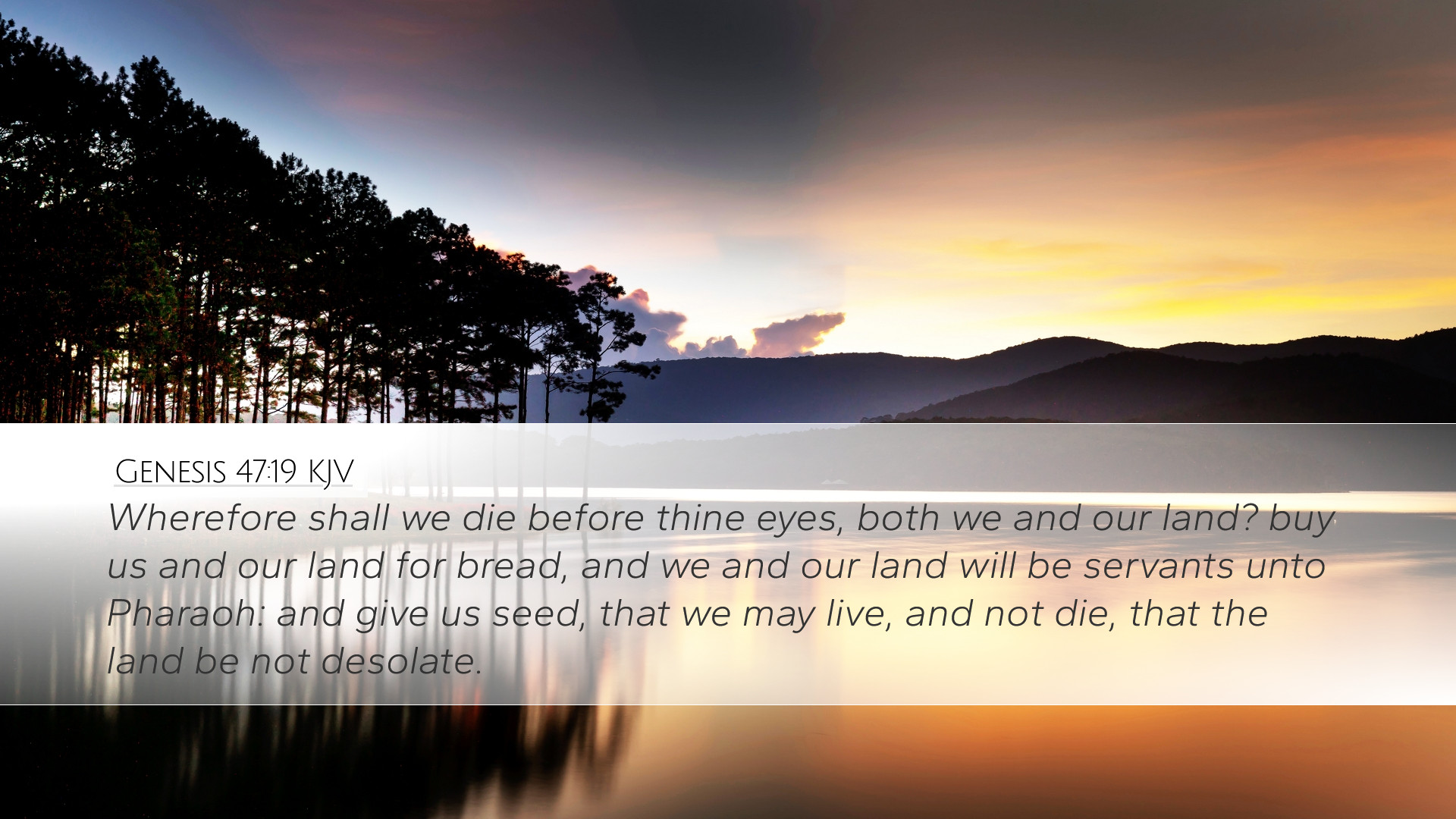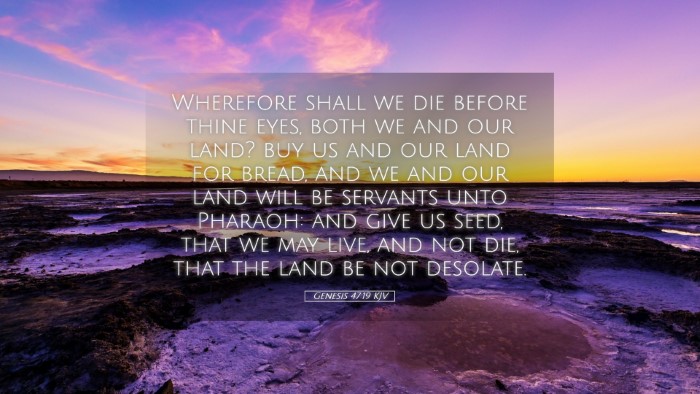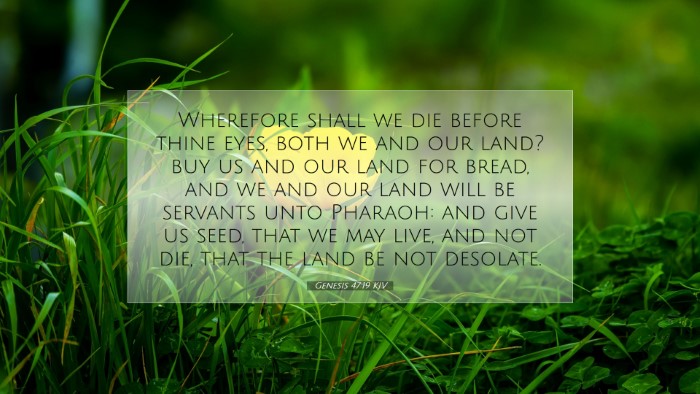Commentary on Genesis 47:19
Genesis 47:19 states:
"Wherefore shall we die before thine eyes, both we and our land? Buy us and our land for bread, and we and our land will be servants unto Pharaoh: and give us seed, that we may live, and not die, that the land be not desolate."
Contextual Background
This verse is situated in the broader narrative of the famine that affected Egypt and Canaan. Joseph, having risen to power in Egypt, manages the resources and welfare of the people during this time of crisis. The dire circumstances drive the Egyptian populace to offer their land and themselves to Pharaoh in exchange for sustenance.
Theological Insights
-
The Sovereignty of God:
Joseph’s role in this narrative emphasizes God's providential care. As Joseph interprets dreams and distributes grain, it is evident that God orchestrates events for the fulfillment of His divine plan—not only for Egypt but also for Jacob’s family, who would later thrive in Egypt.
-
The Nature of Human Desperation:
This verse illustrates the extremes to which people will go in desperation. The Egyptians, faced with starvation, are willing to exchange their freedom and land for survival. This reflects the humanity's instinct to survive, even at great cost.
Commentary from Public Domain Sources
Matthew Henry
Matthew Henry emphasizes the plight of the Egyptians and their plea to Joseph. He notes how the famine led them to a state of utter dependence. Henry points out that the Egyptians' submission to Pharaoh was not merely for sustenance but also a recognition of his authority and the sovereignty of God at work through Joseph. He reflects on the fact that becoming servants to Pharaoh was a necessary compromise for saving their lives, representing their total surrender to necessity.
Albert Barnes
Albert Barnes elaborates on the implications of this request. He suggests that this transaction was not merely economic but also significant in terms of social structure. By selling their land and becoming servants, the Egyptians effectively changed their status in society because of the severe circumstances. Barnes notes that this foreshadows the eventual enslavement of the Israelites in Egypt, highlighting a critical shift in the socio-political landscape that would have lasting consequences in later biblical history.
Adam Clarke
Adam Clarke's commentary offers an additional layer by focusing on the spiritual lessons inherent in this transaction. Clarke points out that the plea of the Egyptians for seed symbolizes a hope for future sustenance and renewal. The request for seed reflects humanity's need for both spiritual and physical nourishment. Clarke argues that even in acts of desperation, the desire for life and regeneration remains—an echo of the deeper need for salvation and providence.
Lessons for Pastors and Theologians
This passage provides multiple insights relevant for preaching and teaching.
-
Dependence on God:
Just as the Egyptians turned to Joseph in their time of need, congregations can turn to God in their spiritual and physical famines. This is a reminder of the importance of reliance on divine providence.
-
The Cost of Survival:
The narrative underscores the theme that survival often comes at a cost. For pastors, this can lead to discussions about the sacrifices made in life for faith and the ultimate investment in God's kingdom.
-
Hope and Renewal:
Clarke's observation about the plea for seed invites a discussion on resurrection and renewal. It serves as a metaphor for hope amidst despair—central to the Christian message.
Conclusion
Genesis 47:19 provides profound insights into human nature, divine providence, and the socio-economic dynamics of ancient Egypt. Reflecting on the commentaries of Henry, Barnes, and Clarke encourages readers to appreciate the layers of meaning within scripture. The challenges faced by the Egyptians serve as a reminder of humanity’s fragility and the hope found in divine sustenance. This narrative asks us to contemplate our own reliance on God for survival and the immediate and long-term implications of such dependence.


